- Home
- Events
- GIGA Forum
- Making Things Worse? The Fight Against Violence and Crime
GIGA Forum
Making Things Worse? The Fight Against Violence and Crime
Date
06/11/2019
Start
06:00 p.m. (CET)
End
07:30 p.m. (CET)
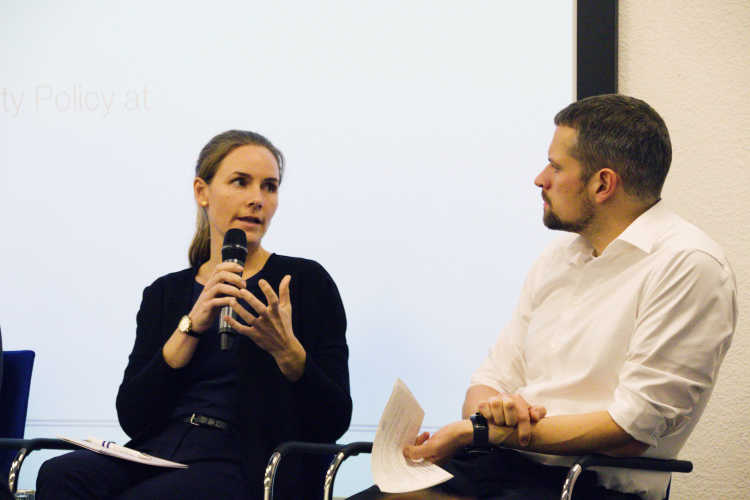
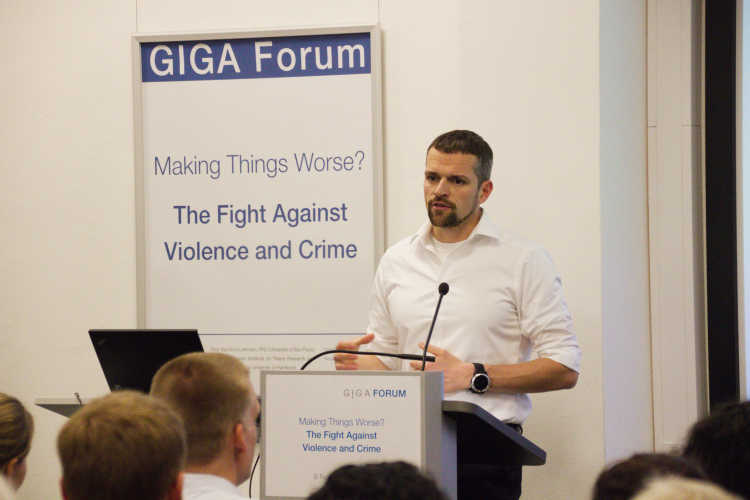
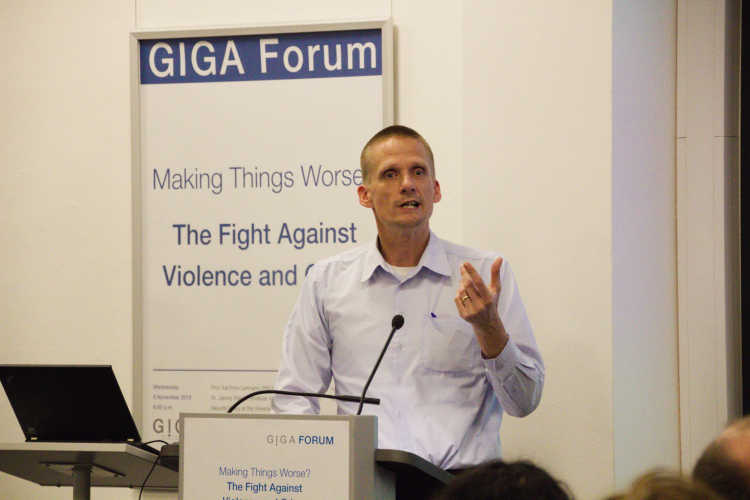
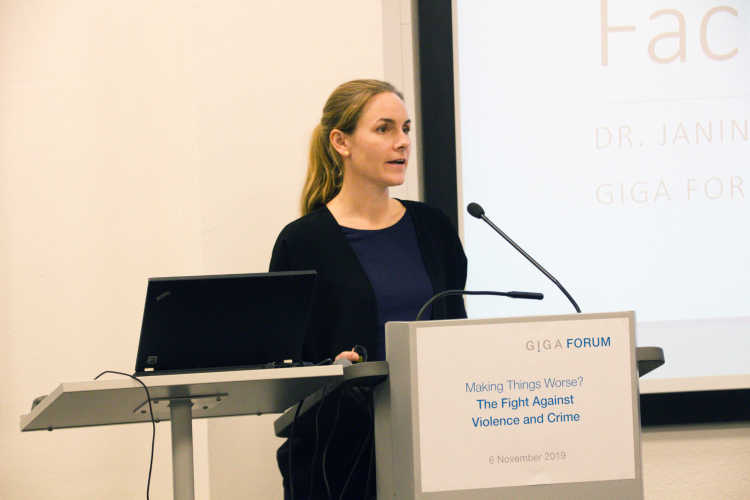
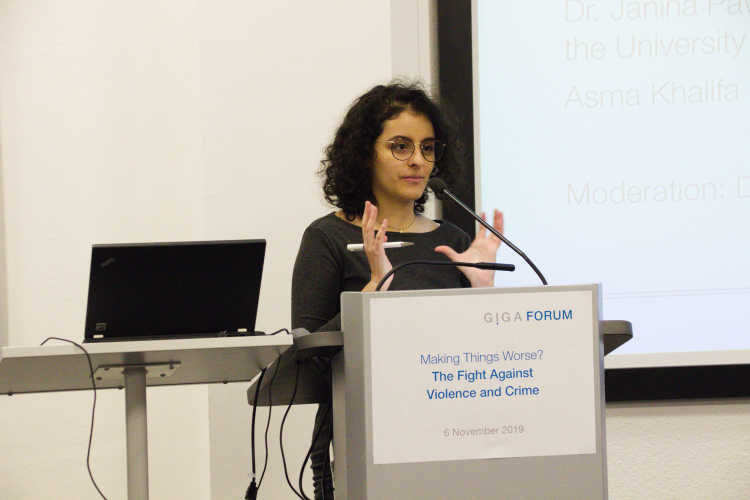
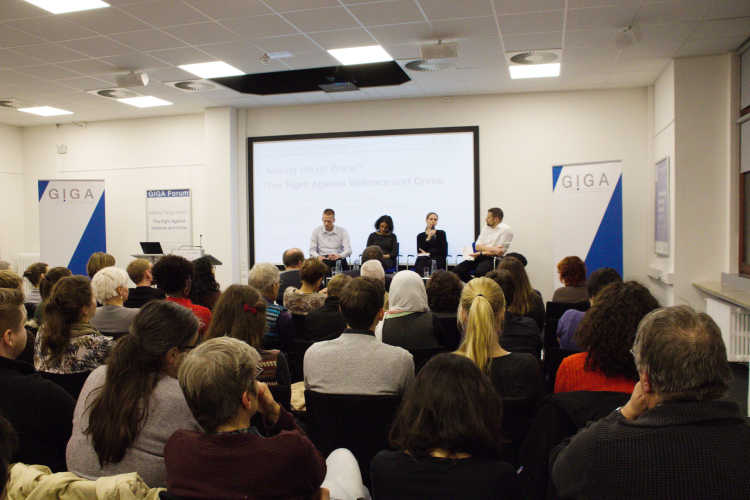
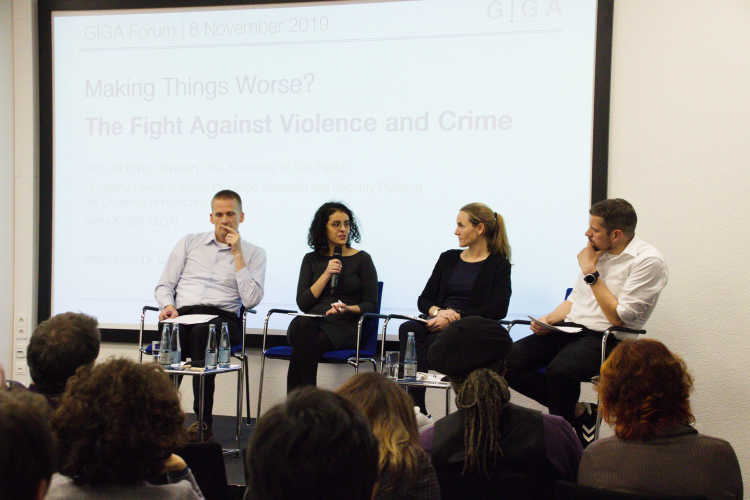








Violence and crime are a problem for societies all over the world. Both pose significant barriers to human security, the reduction of poverty and democratic development. To combat these challenges, domestic actors have devised innovative public policies, often with considerable support from the international community. Yet, local successes have not led to a sustainable reduction in the overall levels of violence. Violence has changed – but the overall pattern remained very similar.
This GIGA Forum zooms in on the unintended consequences of innovative and well-meant policies aimed at the reduction of violence and crime. Taking the example of the EU’s policies in Latin America as a focal point, Prof. Kai Enno Lehmann argues that the combined efforts often fail due to international actors’ different policy approaches at the local, national and regional level. This lead to incoherent structures that not only undermine the broader effectiveness of crime-fighting attempts, but actually "make things worse" by providing space for criminal organizations to expand and consolidate their control.
Dr. Janina Pawelz traces the transformation of violent groups in Trinidad and Tobago over several decades, and argues that social welfare programmes helped criminal gangs to emerge as job providers and turn gang leaders into legitimated community leaders. She talks about "facilitative politics" to refer to activities carried out by politicians or policies that enable criminal organisations – such as gangs – to socially, economically, and territorially empower themselves.
Asma Khalifa critically evaluates the EU’s policies in Libya after the intervention of NATO. She argues that the effectiveness of the community’s migration, development and security programmes is undermined by a lack of coherence within the EU and clashes of member states over interests in Libya.
Panel: Kai Enno Lehmann, PhD, is Professor at the Institute of International Relations at the University of São Paulo. He is supported by the Jean Monnet Network Crisis-Equity-Democracy for Europe and Latin America.
Dr. Janina Pawelz is Researcher at the Institute for Peace Research and Security Policy at the University of Hamburg.
Asma Khalifa is Research Fellow and Doctoral Student at the GIGA Institute for Middle East Studies.
Moderator: Dr. David Kuehn is Senior Research Fellow at the GIGA Institute for Asian Studies.
Organiser
Address
GIGA Hamburg, Hamburg
Language
English
